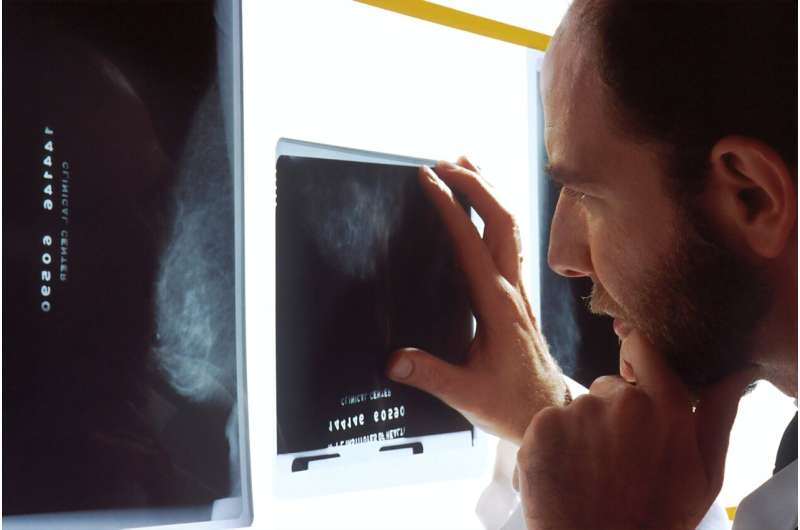
Credit: Unsplash/CC0 Public Domain
Cedars-Sinai Cancer investigators have found that Black men respond as well as white men to systemic therapies for advanced prostate cancer when access to quality health care is equal, regardless of socioeconomic status. Their study, published today in the peer-reviewed Journal of Clinical Oncology, counters previous research suggesting that Black men receiving these therapies—which include hormone therapy, chemotherapy and immunotherapy—fare worse than white men do.
“We believe this is the most comprehensive look at this issue to date, and our findings suggest that, under the right conditions, Black men with metastatic prostate cancer can have outcomes equivalent to those of white men,” said Jun Gong, MD, medical director of Colorectal Cancer Medicine at Cedars-Sinai Cancer and first author of the study. “We want all men with advanced prostate cancer to know that, in the right environment, their outcomes can be promising.”
Prostate cancer, which affects the small gland that helps make semen, is the No. 1 cancer diagnosis and second-leading cause of cancer death in Black men. Black men are twice as likely as white men to die of prostate cancer, a fact that has been at least partially attributed to systemic barriers to health care for Black men.
Investigators in this study contrasted data from a large database of cancer registries reporting outcomes in all types of health care settings with two other types of data. One set of data was collected in health care settings including the Department of Veteran’s Affairs, where access to care for Black patients and white is more equal. Another set of data was from randomized clinical trials where all prostate cancer patients received the same treatment, and outcomes for Black versus white patients were compared.
“It was interesting to find that when Black and white men were provided equal access to the same therapies, given at the same dosage and monitored in the same setting, disparities in outcomes were eliminated,” Gong said.
Gong said that the team’s findings point to the need for continued active recruitment of Black men and other minority groups into prostate cancer clinical trials. Community outreach and education are also needed, along with other efforts to provide more equal-access settings for prostate cancer patients.
“Addressing disparities affecting the health of the diverse populations we serve is a priority throughout our institution,” said Dan Theodorescu, MD, Ph.D., director of Cedars-Sinai Cancer and the PHASE ONE Foundation Distinguished Chair. “Through our Community Outreach and Engagement efforts and our ongoing research, we are working to better understand the factors contributing to these disparities, including socioeconomic factors and biological drivers that can be addressed through continued advances in precision medicine.”
Gong and his colleagues have additional studies underway to further explore these issues. One is examining treatment patterns for Black versus white prostate cancer patients within the VA, including type of therapy offered, time from diagnosis to initiation of treatment, and what happens when these factors are equalized.
A separate study is examining drug compliance in Black versus white metastatic prostate cancer patients, how that affects patient outcomes, and whether Black men fare as well as white men when patient compliance is equal.
More information:
Disparities With Systemic Therapies for Black Men Having Advanced Prostate Cancer: Where Do We Stand?, Journal of Clinical Oncology (2023). DOI: 10.1200/JCO.23.00949
Citation:
An updated look at prostate cancer disparities (2023, October 27)
retrieved 28 October 2023
from https://medicalxpress.com/news/2023-10-prostate-cancer-disparities.html
This document is subject to copyright. Apart from any fair dealing for the purpose of private study or research, no
part may be reproduced without the written permission. The content is provided for information purposes only.
>>> Read full article>>>
Copyright for syndicated content belongs to the linked Source : Medical Xpress – https://medicalxpress.com/news/2023-10-prostate-cancer-disparities.html
